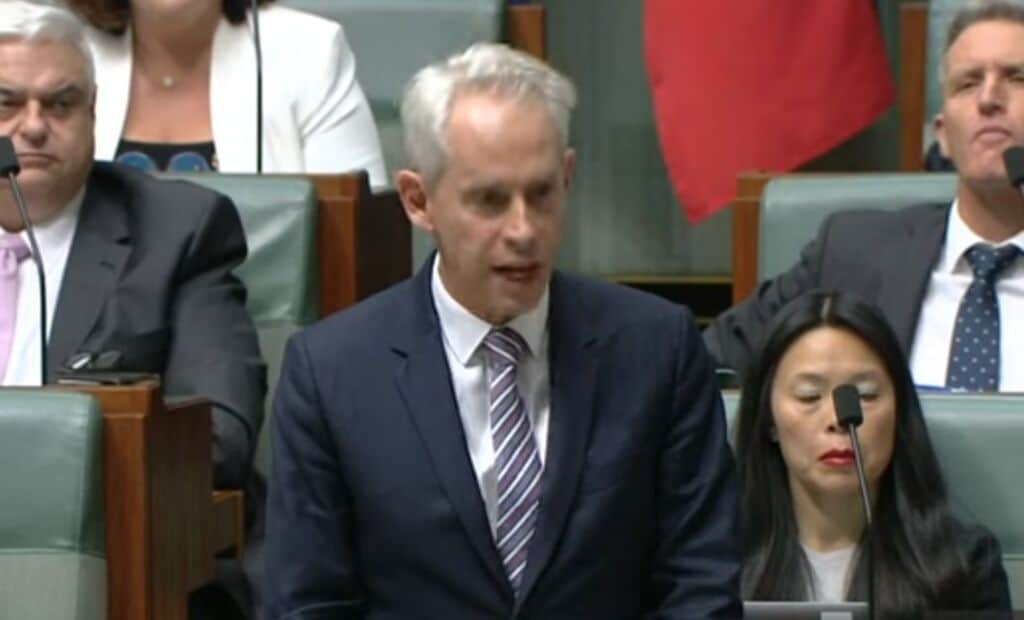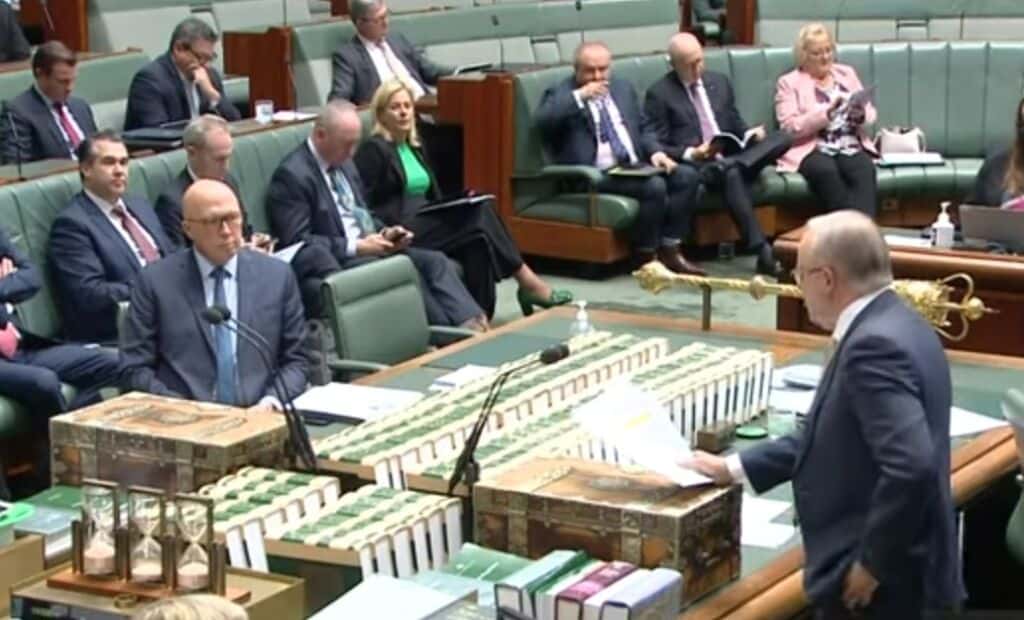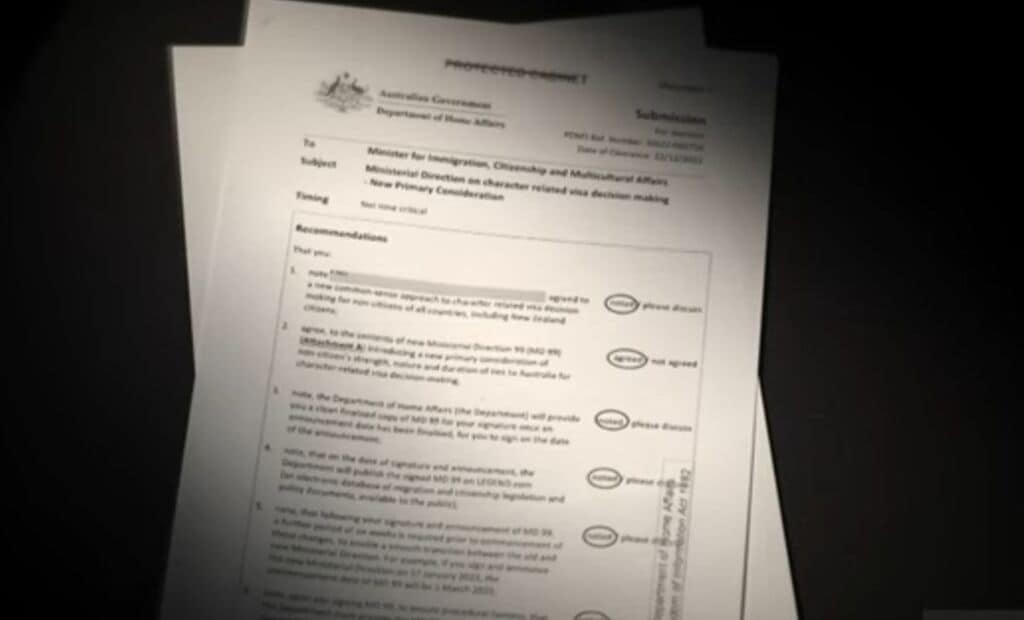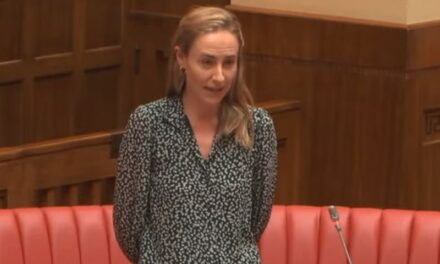Labor and Liberal Parties Both Accused of Failing to Address Longstanding Immigration Issues
Australia’s immigration policies are under intense scrutiny as both the current and previous governments face criticism for their handling of immigration detention and border security. The current Labor government is under fire for releasing violent immigrants into the community, while the previous Liberal government is blamed for systemic problems that allowed exploitation.
In 2022, we said the two major parties had failed the Australian people. There was a campaign to put the majors last, and the government changed. Neither party appears to have learned anything.
Immigration Policies Background
Australia has long grappled with immigration policy challenges. Over the years, successive governments have struggled to balance border security with humanitarian obligations. The transition from the Liberal to Labor government brought about promises of reform, but many issues have persisted, leading to a complex and contentious political landscape.
Current Criticism of Labor Government
The Albanese government’s immigration detention policy has been heavily criticized. The opposition claims the policy is “out of control,” pointing to instances where violent immigrants were released into the community. The West Australian newspaper noted that opposition leader Peter Dutton accused the government of failing to protect Australian citizens from potential threats posed by released detainees. “This policy is putting Australians at risk,” Dutton said, emphasizing the need for stricter controls and better oversight.
Further, 9News reported that the release of these individuals sparked heated debate in parliament, with calls for immediate action to rectify the situation. Critics argue the current approach lacks necessary safeguards to prevent violent individuals from re-entering society unchecked.

Immigration minister Andrew Giles, labor party
Crimes Committed by Released Detainees
The decision to release detainees unchecked had severe repercussions. According to ABC News, nearly half of the detainees released by the Labor government have been convicted of violent offenses. These offenses range from assault and domestic violence to more serious crimes like armed robbery and sexual assault.
One notable case involves a detainee who was convicted of multiple counts of assault within months of being released. This individual had a history of violent behavior, raising questions about the screening and risk assessment processes used by the authorities. Critics argue that this case exemplifies the dangers of releasing potentially dangerous individuals without adequate supervision or support mechanisms in place. It also points to gross failure in deciding who can come into the country.
Another troubling incident involved a detainee who committed armed robbery just weeks after being released. The robbery resulted in significant injuries to the victims, prompting an outcry from the community and calls for stricter controls. “The government’s failure to properly manage these releases has put innocent lives at risk,” a local community leader said.
These cases highlight the urgent need for a reassessment of the policies governing release of immigration detainees. The public’s safety should be a paramount concern, and any decision to release individuals must be accompanied by robust measures to mitigate the risk of reoffending.
Previous Liberal Government’s Issues
The previous Liberal government, led by Peter Dutton as Home Affairs minister, also faced significant criticism. In 2022, Labor’s Home Affairs minister condemned the Liberal administration for allowing systemic flaws that facilitated exploitation. As reported by The Age, the minister highlighted how criminals manipulated the immigration system to bring in people for exploitation, a situation she described as a “state of disrepair.”
“Peter Dutton’s tenure saw a neglect of critical oversight mechanisms,” the minister stated, pointing to numerous cases where the system was abused. This neglect, she argued, laid the groundwork for the problems currently faced by the Labor government.
Politicians’ Push for a “Big Australia”
The drive for a “big Australia” has long been a contentious issue. Politicians across various administrations have advocated for higher immigration levels, arguing that a larger population is essential for economic growth and addressing workforce shortages. However, this push often runs counter to public sentiment.
Many Australians feel that the rapid increase in population has led to significant challenges. Overcrowding in cities, a severe housing shortage, and increased pressure on the health and medical systems are just a few of the concerns. The influx of low-skill immigrants, who are perceived as not contributing significantly to the economy or integrating into society, exacerbates these issues.
Critics argue that the policy of expanding Australia’s population through high immigration rates has not been matched with adequate infrastructure development or support systems. “Australians never asked for a ‘big Australia,'” is a common refrain. “We have overcrowded cities, unaffordable housing, and strained public services.”
Assimilation is another critical aspect that is often overlooked. Successful integration of immigrants into society requires not only economic opportunities but also cultural and social support. Without a focus on assimilation, there is a risk of creating isolated communities that do not fully participate in or contribute to broader Australian society. This lack of integration leads to social tensions and undermines community cohesion.
The push for a “big Australia” needs to be reevaluated in light of these challenges. Policymakers must balance economic goals with the realities faced by existing communities. Prioritizing assimilation and ensuring that immigrants can integrate and contribute meaningfully to society should be a key focus moving forward. Only then can the benefits of a larger population be realized without compromising the quality of life for all Australians.

Anthony Albanese and Peter Dutton argue immigration policies.
Analysis
Both the Labor and Liberal governments have failed to manage immigration effectively, resulting in severe consequences for public safety and trust. The Liberal government’s neglect created loopholes that criminals exploited, while the Labor government’s immigration policies have led to the release of potentially dangerous individuals into the community.
An underlying factor in this ongoing mismanagement may be the role of the bureaucrats who run the immigration department. These officials, who often remain in their positions across different administrations, play a crucial role in advising and implementing policies. However, questions arise about their influence and accountability in these decisions.
Are the same bureaucrats serving under both governments? If so, their role in the persistent issues within the immigration system cannot be overlooked. Did these officials warn Peter Dutton about the problems when he was responsible for the department? Furthermore, did they advise or caution Andrew Giles about the risks associated with releasing violent detainees?
Experts argue that these issues highlight a broader problem within Australia’s immigration framework. There needs to be a comprehensive review and overhaul to address deep-seated problems, including an examination of the bureaucratic influence on policy implementation.
The push for a “Big Australia” is often driven by powerful lobbyists and economic advisors who argue that a larger population is essential for sustained economic growth. These external forces, including business groups and real estate developers, benefit from a growing population through increased demand for goods, services, and housing. Bureaucrats within the immigration department, influenced by these external pressures, may also support higher immigration levels without fully considering the societal impacts. The alignment of these interests creates a policy environment where the push for a “Big Australia” overrides public concerns about overcrowding, inadequate infrastructure, and insufficient assimilation efforts.
International organizations like the United Nations and the World Economic Forum may also influence Australia’s immigration policies. These organizations often advocate for increased global migration as a means to address demographic imbalances and economic inequalities. Their frameworks and recommendations can shape national policies, encouraging higher immigration rates under the guise of global responsibility and economic benefit. The involvement of such powerful global entities adds another layer of complexity, making it crucial to scrutinize how international agendas align with national interests and public welfare.
New evidence has emerged indicating that Immigration Minister Andrew Giles was warned about the risks associated with his decision to halt the deportation of sex offenders. According to the Daily Mail, bureaucrats cautioned Giles about the potential dangers of this policy shift. However, question remain: if bureaucrats were truly concerned, why didn’t they suggest a more cautious approach, such as testing the policy on a smaller number of cases where offenders had family and other ties in Australia? Why didn’t Giles suggest this? This lack of a measured trial suggests either a disconnect between the bureaucrats’ advice and their actions or a failure to prioritize public safety in the decision-making process.
Stakeholders emphasize the need for better management and accountability to restore public confidence. The continued mismanagement not only affects community safety but also undermines the integrity of Australia’s immigration system. Addressing the role of bureaucrats and external influencers, including international organizations, in these failures is essential for ensuring that future policies are both effective and responsibly executed.

Immigration direction 99 by Andrew Giles, Labor Party
Conclusion
The criticisms faced by both the Labor and Liberal parties over immigration policies underscore a pressing need for a complete reassessment of Australia’s immigration policies. Both governments have shown significant lapses in management, resulting in widespread issues that have persisted for years. To prevent future crises, there must be a concerted effort to implement effective oversight and robust policies that prioritize the safety and well-being of the community.



